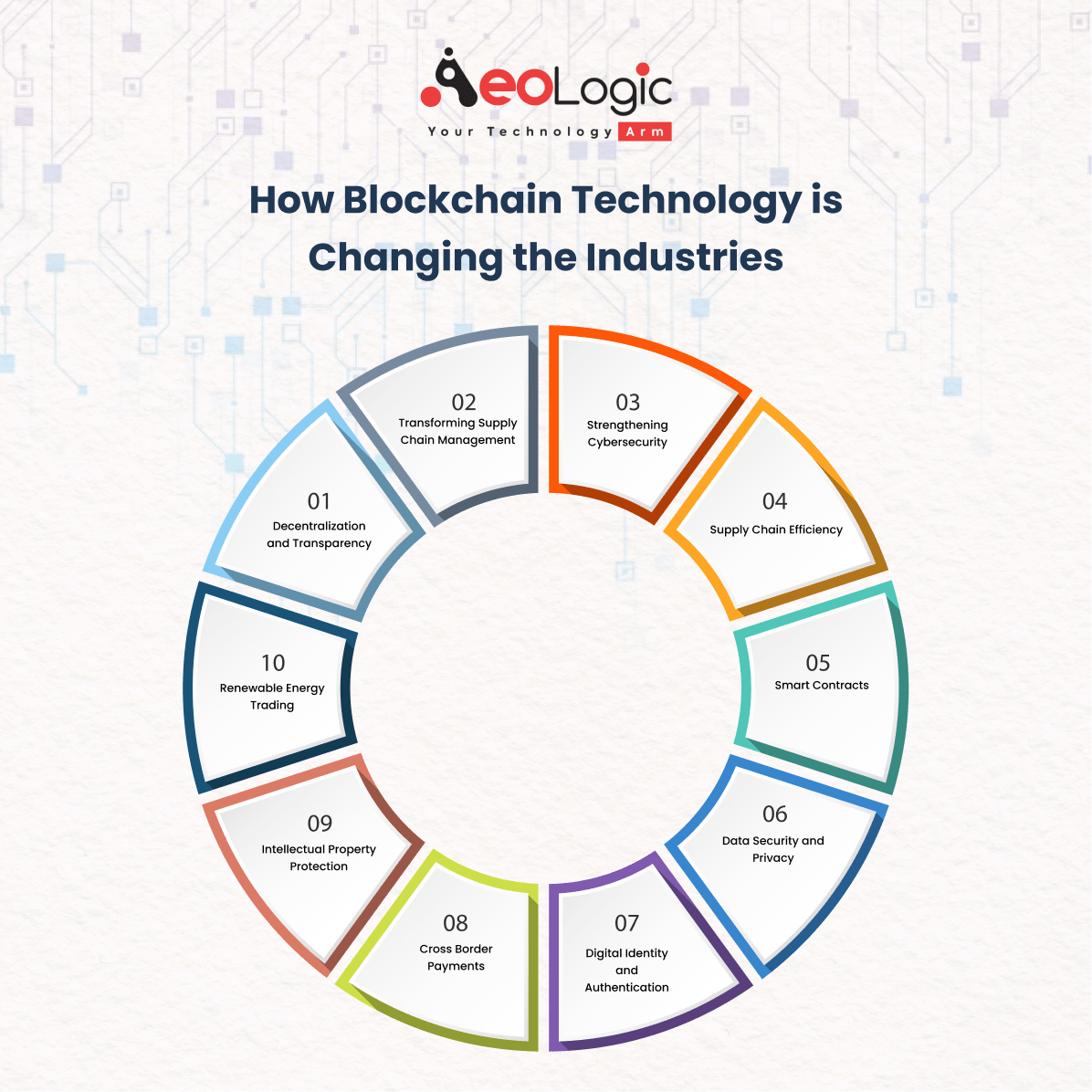In the digital age, the role of blockchain technology has surfaced as a revolutionary force that has the implicit to transfigure diligence across the globe. As a leading technology solutions provider, Aeologic Technologies is at the forefront of employing blockchain’s power to drive invention, security, and translucency across various sectors. Originally introduced as the underpinning technology behind cryptocurrencies like Bitcoin, blockchain has evolved far beyond its digital currency roots. At its core, blockchain is a decentralised, transparent, and immutable distributed tally that enables secure deals between parties.
The transformative power of blockchain lies in its capability to address crucial challenges faced by traditional diligence. By barring the need for third parties and central authorities, blockchain can streamline processes, reduce costs, and enhance security. Its tamper resistant nature ensures data integrity, making it ideal for diligence handling sensitive information like healthcare, finance, and supply chain operation.
As diligence highly gauge the advantages of blockchain technology, its perpetration is anticipated to gain traction, basically transubstantiating traditional practices and paving the way for a more effective, transparent, and secure future. In this blog, we will explore how blockchain is changing the geography of different industries.
Also read: The Benefits of Blockchain Technology in Supply Chain
What’s the Role of Blockchain Technology?
Blockchain technology is a decentralised and transparent digital tally system that securely records deals and data across a network of computers. Each block contains a timestamp and a link to the former block, forming an immutable chain of information. Utilising cryptographic ways, blockchain ensures tamper resistant and empirical records, barring the need for a central authority. It underpins cryptocurrencies like Bitcoin, but its operations extend beyond and enhances security, fosters trust, and enables flawless peer to peer relations without interposers.
Before probing into its impact on industries, let’s grasp the fundamentals of blockchain technology. At its core, blockchain is a decentralised and distributed tally that records deals or data in a secure and transparent manner. This essential security point ensures the integrity of data and makes it ideal for various operations.
How the Role of Blockchain Technology is Changing the Geography of Different Sectors

Transforming Supply Chain Management
Supply chain operation is a complex web of connected processes involving multiple stakeholders. The role of blockchain to produce transparent and traceable supply chains is a game changer. It provides real time visibility into the movement of goods and raw accoutrements, reducing the threat of fraud, counterfeiting, and theft.
Strengthening Cybersecurity
As technology advances, so do cyber pitfalls. Traditional centralized systems are vulnerable to attacks, but blockchain’s decentralized armature provides enhanced cybersecurity.
Decentralization and Transparency
Blockchain’s hallmark point is its capability to establish trust through decentralization and clarity. By creating a secure and immutable tally of deals, blockchain eliminates the need for third parties, reducing costs and adding effectiveness. This is particularly poignant in sectors like finance, where traditional intermediaries for example, as banks can be replaced with peer to peer deals on a blockchain network.
Supply Chain Efficiency
Blockchain’s translucency and traceability make it an inestimable tool in supply chain operation. It enables real time tracking of goods, from raw accoutrements to the final product, assuring authenticity and quality. This has far reaching counter accusations for diligence like agriculture, medicinals, and luxury goods, where maintaining the integrity of the supply chain is pivotal.

Smart Contracts
Smart contracts are self executing contracts with the terms of the agreement directly written into code. They automate processes, allow trust, and reduce the threat of human error. For case, in the real estate assiduity, blockchain grounded smart contracts can streamline property deals by automatically transferring power once predefined conditions are met.
Data Security and Privacy
Sectors dealing with sensitive data, such as healthcare and identity verification, can profit from blockchain’s enhanced security features. Data stored on a blockchain is translated and decentralized, reducing the threat of data breaches. Users retain control over their information, participating only what is necessary, therefore bolstering privacy.
Digital Identity and Authentication
The role of Blockchain technology has the implicit to revise how digital identity is managed. With self autonomous identity systems, individualities have control over their own digital individualities, reducing the need to partake particular information with multitudinous parties. This can streamline processes like client onboarding and authentication.
Cross Border Payments
Blockchain powered cross-border payments can exclude third parties and expedite deals. This is especially significant for individualities and businesses dealing with transnational deals, as it reduces freights, processing times, and currency conversion costs.
Intellectual Property Protection
The creative assiduity faces challenges related to brand violation and intellectual property theft. Blockchain can give a secure platform for creators and generators to register and cover their work, assuring proper criterion and compensation.
Renewable Energy Trading
Blockchain facilitates peer to peer energy trading by allowing individualities to directly buy and vend extra energy generated from renewable sources. Also, this decentralized energy exchange can potentially revise the energy assiduity. Thereby encouraging cleaner and further sustainable practices.
Voting Systems
Blockchain driven voting systems can enhance the security, translucency, and availability of choices. Moreover, it can alleviate enterprises about voter fraud. And give real time results. Thus, adding confidence in popular processes.
Also read: How Blockchain Could Disrupt the Banking and Finance Sector?
Conclusion
In conclusion, the role of blockchain in transforming industries is undeniable. Its capability to establish trust, enhance translucency, and automate processes. Hence, it has the implicit to reshape traditional business models across various sectors. While there are still challenges to overcome. For example, as scalability and regulatory considerations, the ongoing exploration and development in the blockchain space indicate a promising future where industries come more effective, secure, and client centric. As blockchain continues to evolve. Furthermore, its impact will probably extend indeed further. Thus, steering in a new period of technological invention.









